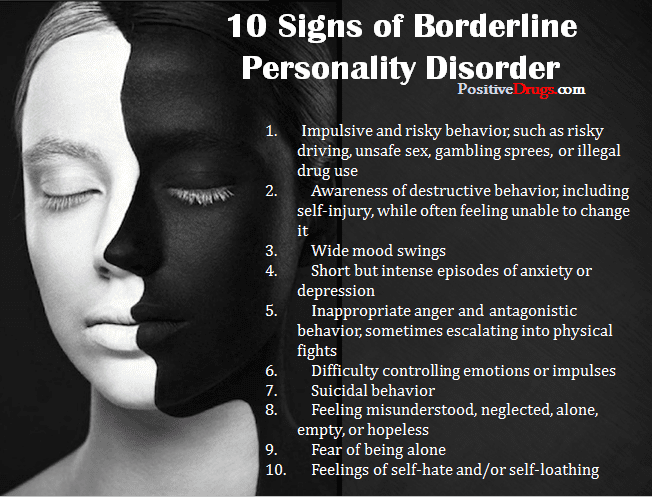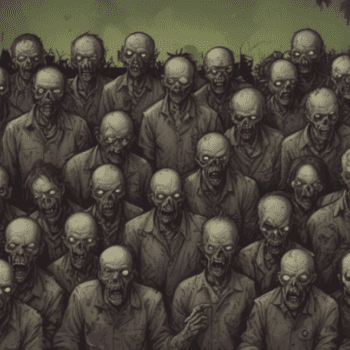The story is told of a woman who lived in a nation that bordered another nation. The other nation had checkpoints at the border. Every day, she rode her motor-scooter to one of border crossings to get to the other side. And every day she’d return through the same border crossing
The guard at that station took his job seriously and he diligently inspected all of the many canvass bags she carried with her on her scooter. He could tell she was up to something, but he could never find any contraband or find her in violation of any laws. Time passed, and they got to know each other. When she saw that he was getting a bit thin (his finances were strained one month and he skipped many meals), she would bring him fresh baked bread and cheese. When he learned that a fire occurred in the kitchen of her home and burned it severely, he gave her new baking pans.
After several years, on her return trip home one afternoon, he informed her, “Today’s my last day on the job. I’m retiring tomorrow. Look, I know you’ve been smuggling something! And I’ve been going crazy trying to figure out what it is. Tell you what, person to person, just tell me what it is. I promise not to tell my superiors. I just need to know!” The woman could sense his sincerity. Smiling, “Motor-scooters! I’ve been smuggling motor-scooters!”
 Some might consider the point of this story to be an admonition to always pay attention to detail, to not take things for granted, and to never assume things or miss the obvious.
Some might consider the point of this story to be an admonition to always pay attention to detail, to not take things for granted, and to never assume things or miss the obvious.
I share this story, however, to say something about borders. Having boundaries in life can be very healthy. Indeed, they are. And this story shows healthy border dynamics that involves mutual trust and respect for fellow human beings. The border guard and this woman had respect for each other and they had authentic relationship that transcended legalistic imperatives.
Across the globe at this time, there are numerous conflicts taking place that primarily revolve around perceived borders and boundaries.
In the Ukraine, tensions and violence are so out of hand that a civilian jet liner flying over the combat zone was recklessly shot from out of the sky. 200 innocent civilians lost their lives as a result.
In Israel-Palestine, massive and disproportionate violence as been wrought upon the people of Gaza. And many people, mostly civilians, including many children – have been killed. Nearly two thousand.
In response, those events have triggered an anti-semitic backlash and the windows of many store-fronts in Paris have been smashed and protests in the street have had people yelling “Gas the Jews!”
And along the U.S.’s southern borders, certain self-appointed, uber “patriot vigilante minutemen” have been taking it upon themselves to police the Texas border with Mexico with machine guns – and hollering all sorts of obscene things at the frightened children.
A Grand Wizard of the KKK even called for those vigilantes to “shoot those vermin kids.”
Yes, boundaries can be healthy, but they can also be unhealthy and dysfunctional. What matters is how we manage our borders.
A while back, I had a girlfriend who had been diagnosed with Borderline Personality Disorder. When she was born, her parents were Scientologists. According to her, unless parents are deemed as being fully “clear,” by that “Church,” they remove newborns from their parents at 4-6 weeks of age and place them in “The Cadet Corps.” They don’t want parents who are “still corrupt” to “taint” children. Mothers can visit their babies once a week – until the mothers/parents have been deemed “clear” (via paying their way through a series of “clearness classe$”).
Having the primary and foundational basis of all human relationships breached in such a traumatic way at such a young age is highly dysfunctional – and it is quite literally crazy-making.
Borderline Personality Disorder is a result of severe childhood trauma or neglect. It’s a coping mechanism that works – to an extent.
If a child experiences chaos in the world around them, they amass a profound need for order and some sense of control and predictability. BDP is an overcompensation that leads to a life of rigidity – seeing the world in only black and white.
(source)
Because they have a hard time trusting in the ongoing presence of loved ones, people with BPD become overly clingy and will attempt anything, even wacky things, to preserve a relationship. However, if things don’t work, they tend to fully reject the other and see them as utterly without merit or value.
As I understand it (having consulted with a therapist to prepare for this article), people with BPD tend to be self-absorbed, ideologically rigid, and dogmatic. They have to be right and the exhibit little room for compromise.
Again, they tend to see everything as black or white. They have little capacity to view the many shades of grey that are what actual life consists of.
The medicine for BPD is the therapeutic relationship, and therapists spend much time with them showing them concrete evidence of a human they can trust and rely on. And they also spend much time and energy showing them shades of grey in the nuances and twists and turns of life.
Therapists covenant to be with them and to stay with them. From a Christian point of view, they offer a ministry of presence and relationship.
One of my favorite professors in seminary had a framed cross-stich on her wall that said, “Christianity is a relationship.”
Christianity is a relationship. That power of the concept taught me more than of the four years of seminary combined. I’m still learning it.
Jesus occasionally ran into people who had the theological equivalent of Borderline Personality Disorder. He had altercations with people who were ideologically rigid and uncompromising and who dismissed those who “weren’t right.” To such people, Jesus offered the medicine of showing them shades of grey.
The passage in Luke’s Gospel known as “The Good Samaritan” is one such instance. It begins with someone seeking to set up a trap, “On one occasion an expert in the law stood up to test and trap Jesus. “Teacher,” he asked, “what must I do to inherit eternal life?…”
Jesus employs the Socratic method and has him answer some questions to come to obvious conclusions. But the lawyer presses it further saying, “Who is my neighbor?”
Jesus doesn’t answer him directly, but instead tells him a tale of boundaries and relationships. In the end, the lawyer concedes that it was the Samaritan who was neighbor to the man who’d been robbed, beaten, and left for dead.
This is a big deal.
Proper Jews back then didn’t expect anything good to come out of Samaria. Indeed, they hated the Samaritans — perhaps even more than they hated the Romans who were occupying their nation. You see, back when the Assyrians invaded and took over Israel, 700-500 BC, the “true” Jews went into exile, but some stayed behind and inter-married with the Assyerians and syncretized some of their ways and traditions. When the “true” Israelites returned, they dismissed the Israelites who’d stayed behind as “heretics” and “half-breeds.”
We more liberal-minded folks who consider ourselves as being “progressive Christians” might be open to a modern version of the parable in which the Samaritan is instead a drug addicted, HIV+, domestically–beaten, welfare-receiving, Hispanic, lesbian, single mother (I provided that very retelling of the parable in my book “Kissing Fish” p. 172). We love the idea of narrow-minded, judgmental conservatives being challenged and stretched by Jesus.
However, my invitation for us is to go beyond our normal comfort zones and to instead view the ultra-nationalist, gun-weilding, self-appointed, “patriot minutemen” border guards – as being the ones who may just be the very persons who in the heat of the moment, provide great compassion and care to famished, undocumented persons who are crawling across our borders. I’m inviting us to see those who we write off as “xenophobic, hateful bigots” as being neighbor to people in need.
“Yeah, right” you say.
And that’s why I’m saying this. That’s exactly what Jesus would tell us – and I truly believe this with all my heart.
At the campus ministry that I’m blessed to serve, we offer a weekly ministry known as Peanut-butter N’ Luvin’. It seeks to meet the needs of homeless persons in our community to be fed and to be “seen” and know that “regular people” do give a damn about them. And it also meets the need of young adults at the University of Colorado, Christian or not, to roll up their sleeves and to give back to their community. The motto is “No preaching, no converting. Just peanut butter and loving.”
At one of these weekly events, a student I’ll call “Jenny” showed up to make sandwiches. She was clearly distressed, but I couldn’t tend to her as I was needing to organize and run the many students who came to volunteer that day.
We finished preparing all of the food and started walking downtown and broke up into smaller teams and began doing our thing.
I happened to be in the group with Jenny in it and I saw her engaging with a homeless woman. Then I noticed that older woman hugging Jenny, who had apparently confided in her, and saying, “There. There. You’re going to be all right. Everything’s going to be okay. Give it to God. He’s got this. Let’s pray about it.”
Jenny may’ve showed up to be in ministry to people in need, but one of those people in need saw that Jenny was the one who was truly in need, and ministered to her!
I’m blessed to see, and experience, this sort of thing happen frequently.
Friends, I want to submit that our society suffers from a collective Borderline Personality Disorder writ large on a massive, macro, scale. We’re overly-rigid, hyper-vigilant, unduly wary, and reticent to see and embrace the messy merits of others. We all too readily dehumanize vast groups of people and consider them dogs or monsters. Arguing this case doesn’t involve a PhD thesis. One need only to watch the news – and look in a mirror.
Until we can see God in everyone, until we can see the face of God in “the other,” until we can flip the script and see God in those who we tend to write-off and not expect to see Godliness in — we have work to do.
And until we actually get to personally know and have personal relationships with people who we disagree with; until we have personal relationships with the people who make us uncomfortable, we’re prone to being estranged and alienated from them. And we’re prone to all manner of violence against them – even if it’s a few degrees removed by condoning and being complicit in violence against them.
“Christianity is a relationship”
— and it’s not just with those who think or believe like we do, or who are just like us. Or, rather, we’re called to be in authentic, lasting relationship with – to be neighbor to – those who are grey like us. We’re called to be the medicine.
Let those who have eyes to see, see, and take loving action.
Amen.
xx – Roger
 Rev. Roger Wolsey is an ordained United Methodist pastor who directs the Wesley Foundation at the University of Colorado at Boulder, and is author of Kissing Fish: christianity for people who don’t like christianity
Rev. Roger Wolsey is an ordained United Methodist pastor who directs the Wesley Foundation at the University of Colorado at Boulder, and is author of Kissing Fish: christianity for people who don’t like christianity














